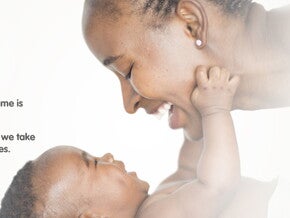
Becoming a parent brings many challenges but probably the one most talked about amongst new parents, is dealing with a lack of sleep or the challenge of getting your new baby to sleep for more than a few hours at night. Whether you have a partner or are a single parent, you may need a “support team.” It can include anyone who’s close to you: your partner, family, friends, and your healthcare provider.
Many people in your life may want to support you during this exciting time, but may not know the best way to help. Letting them know what you need and when, can help them to help you.
Here are some tips to help guide your support team. Because every support team is unique, feel free to come up with some special ideas of your own.
Learn together: Encourage the people on your support team to become informed about your feeding choices for baby. The more they know, the more you can discuss the process together.
Talk to each other: Communication is key. Talk about how you’re feeling, and let the people around you know how they can help you. Whilst the actual act of feeding may happen just between you and your baby, your overall feeding experience will be a more positive one if you are willing to let others help you.
Support each other: Kindness, patience, and encouragement will go a long way no matter who is on your support team. The people around you should be supportive of your choices. So remember to be a support for each other and to back each other up when talking to people about your feeding choices. Support can also mean helping you stay healthy. Your partner can help you eat right and stay hydrated, as this will help you cope physically with the challenges of broken sleep and demanding days.
Get help with chores: Don’t be afraid to ask your partner or people on your support team to help out with household chores, running errands, or preparing healthy meals so you can feed or bath the baby or rest.
If you have a partner, ask him or her to join you when you feed: Feeding your new baby can be a calm and relaxing time for you, your partner, and your baby to just be together and bond. There are lots of ways your partner can help out, even if you are the one doing the actual feeding. Depending on your circumstances, your partner may be able to help with the feeding or may even help you to read your baby’s hunger and fullness cues. He or she could also change the baby’s nappy before night-time feedings.
Nurture the baby: While babies get nutritional nourishment from feeding, emotional nourishment is important for your baby, too. Partners can cuddle, hug, play, and spend as much time as possible nourishing your baby’s development.
Finally, remember that your “partner” can be any trusted, reliable friend or family member who is eager to support your feeding choice.















